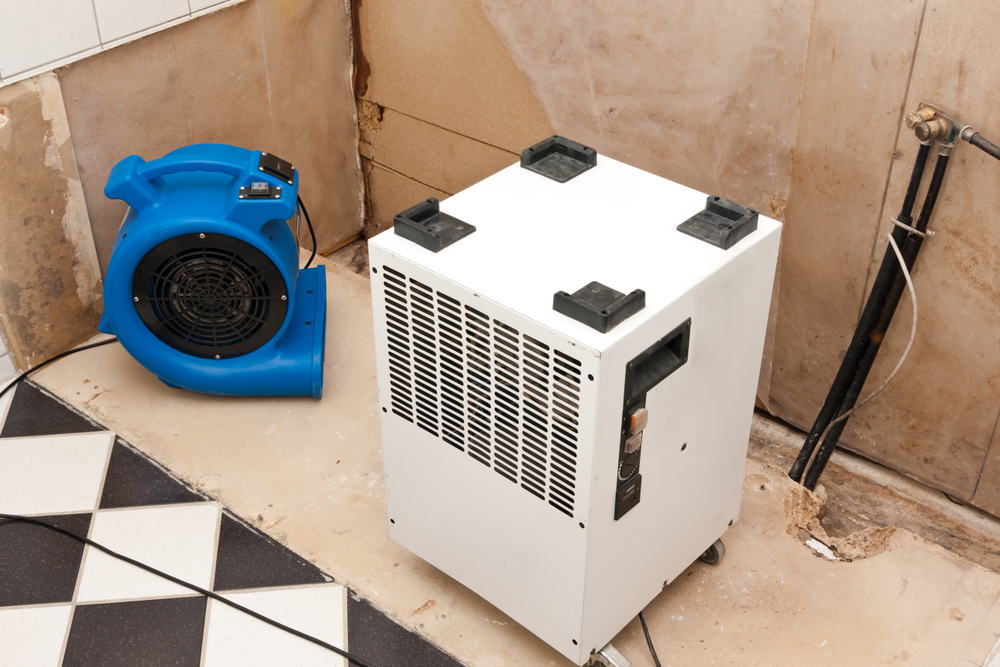Ever wondered what happens when your basement gets flooded? Water damage in a basement is more than just a wet floor. It can lead to mold, weakened structures, and damage to your belongings. But how bad can it get, and what can you do to stop it?
Key Takeaways
- Basement floods can cause significant property damage, including rotted wood and ruined possessions.
- Mold growth from unresolved water issues can pose serious health risks.
- Water damage often requires professional water damage restoration to fully address hidden moisture and prevent further complications.
- Immediate action is crucial to minimize long-term issues and preserve the home’s structural integrity.
- Beyond material losses, health concerns can arise from harmful substances like mold and mildew.
Signs of Water Damage in Your Basement
Spotting signs of water damage in your basement early can save you a lot of money and trouble. Look out for puddles or standing water. If you see water gathering, it’s important to check what’s causing it.
Musty odors are another sign to watch for. They usually mean mold or mildew is growing. Mold loves damp places and can harm your property and health. Seeing mold or mildew on walls or floors means you should act fast.
Look for water stains on walls and floors too. These stains are often discolored spots. Also, check for foundation cracks. These cracks let water in and can weaken your home’s structure.
Other signs of water damage include:
- Efflorescence: A white, powdery substance on walls or floors, showing water moving through concrete.
- Peeling paint: Moisture makes paint bubble and peel off walls.
- Wood rot: Wet wood can decay and become weak, causing structural problems.
- Uneven flooring: Floors that are warped or buckled often have water damage underneath.
Fixing basement moisture problems and catching these signs of water damage early can prevent big issues like foundation cracks. It can also save you thousands in repairs. Regular checks and upkeep are key to keeping your basement dry and safe.
Common Causes of Basement Water Damage
Basement water damage comes from many sources, often not noticed until it’s too late. Lateral and hydrostatic pressure are two main causes. Lateral pressure happens when soil around the foundation gets wet and expands, pushing against the basement walls. Hydrostatic pressure comes from changes in groundwater levels, putting a lot of force on basement walls and floors, causing cracks and moisture.
Foundation leaks are also a big problem. These leaks can start from cracks in the concrete or mortar joints, letting water into the basement. This damage gets worse with lateral and hydrostatic pressure.
Sump pump failure is another issue. Sump pumps keep water away from the basement, but if they don’t work right, flooding can happen. Clogged window wells, overflowing gutters, and short downspouts also cause moisture problems by letting water gather near the foundation.
Bad landscaping that doesn’t move water away from the house also adds to the problem. Heavy rains and snowmelt increase the risk of a flooded basement if you don’t take steps to prevent it.
Knowing what causes basement water damage helps homeowners take steps to stop it. This way, they can protect their homes from these issues.
Health Risks Associated with Basement Water Damage
Water damage in basements can lead to serious health issues, mainly because of mold and mildew. Black mold exposure is a big worry, causing breathing problems. People may cough, sneeze, or have chronic breathing issues, especially if they already have health problems.
Basement dampness also worsens indoor air quality, making allergies and asthma worse. Mold spores and dust mites thrive in moist areas, causing allergic reactions. Poor air quality can make people feel tired, give headaches, and lead to serious breathing problems over time.
It’s crucial to fix water damage in basements quickly. Doing so helps keep indoor air quality good and protects against health risks from mold and dampness. Keeping basements dry and well-ventilated is key to a healthy home, keeping everyone safe from breathing problems.
Is Water Damage in Basement Bad?
Water damage in a basement can cause big problems for homeowners. It can weaken the foundation and make the structure less stable. This might show up as weak walls or floors. Fixing these issues can be expensive, so it’s important to deal with water problems fast.
Also, having water damage can lower the value of your property. Buyers don’t want homes with moisture issues because they worry about future repairs and upkeep. To protect your investment, it’s key to keep moisture out.
In summary, water damage in a basement is a big deal. It can lead to structural problems, high repair costs, and a lower property value. Homeowners should act quickly to fix these issues and prevent them from happening again. This keeps your property safe and valuable.
Preventative Measures for Basement Water Damage
Homeowners can prevent water damage in their basements with key strategies. One effective method is basement waterproofing. This seals the basement against leaks and protects it from water.
Sump pumps are crucial for preventing water damage. They remove water from the sump basin in the basement. Keeping these pumps in good condition and checking them often helps avoid failures during heavy rain.
Improving drainage around the property is also key. Make sure the landscape slopes away from the home to keep water away from the foundation. Using French drains and other systems can also protect the basement from water.
Fixing foundation issues is important to stop water from seeping in. Quickly addressing foundation problems can prevent big damage later.
- Invest in comprehensive basement waterproofing systems.
- Schedule regular sump pump installations and maintenance.
- Implement exterior drainage improvements to redirect water flow.
- Conduct routine inspections and prompt foundation repair.
By taking these steps, homeowners can greatly lower the risk of basement water damage. This keeps their living space dry and healthy.
Steps to Take When You Find Water in Your Basement
Finding water in your basement is a big deal and needs quick action to stop more damage. Here are the key steps to follow:
- Ensure Safety: First, stay away from any wet electrical devices. This is key to avoid getting an electric shock.
- Identify the Source: Figure out where the water came from. It could be from leaky pipes, broken appliances, or flooding from outside.
- Water Removal: Get rid of the water fast. This helps keep your basement safe and stops mold from growing.
- Damage Assessment: Look at how much damage there is. Check walls, floors, and any other wet materials.
- Remove Affected Materials: Throw away wet drywall, carpet, and other things that could get mold.
- Mold Prevention: Dry the area well to stop mold from starting. You might need to use dehumidifiers or fans.
- Consult Professionals: Talk to experts who know about water damage. They can tell you why the flooding happened and suggest ways to prevent it in the future.
- Disaster Mitigation: Do what they suggest to avoid more problems. This could mean putting in sump pumps, fixing foundation cracks, or improving drainage around your house.
Acting fast is crucial to fix the problem now and prevent it from happening again. This keeps your home safe and sound.
Professional Help for Water Damage
When you face water damage in your basement, getting professional help is key. Experts in water damage know how to fix the issue right. They use the latest methods for removing water and drying out the area, reducing more damage.
After water damage, mold can grow, which is dangerous. Mold removal experts have the tools to find and get rid of mold. They work to stop mold from coming back, keeping your basement air clean.
Basement system contractors are also crucial for keeping water out. They know how to spot and fix weak spots in your basement. They can set up sump pumps, drainage systems, and vapor barriers to keep water away.
Using certified water damage specialists, mold removal services, and basement contractors helps prevent water damage from happening again. Their work keeps your basement dry and safe, giving you peace of mind.
Conclusion
Water damage in the basement is a big worry. It can cause structural harm, health risks, and big financial losses. Homeowners need to watch for signs of water damage and know what causes it, like bad drainage, foundation cracks, and plumbing problems.
To keep your property safe, it’s important to take steps to prevent water damage. Regular checks, waterproofing, and good drainage can stop problems before they get worse. If you see signs of water damage, getting help from experts is key to fixing the issue right.
Investing in your property’s safety means your home will be ready for water issues in the future. Good solutions for water damage protect your home’s structure and make your living space healthier for you and your family.









